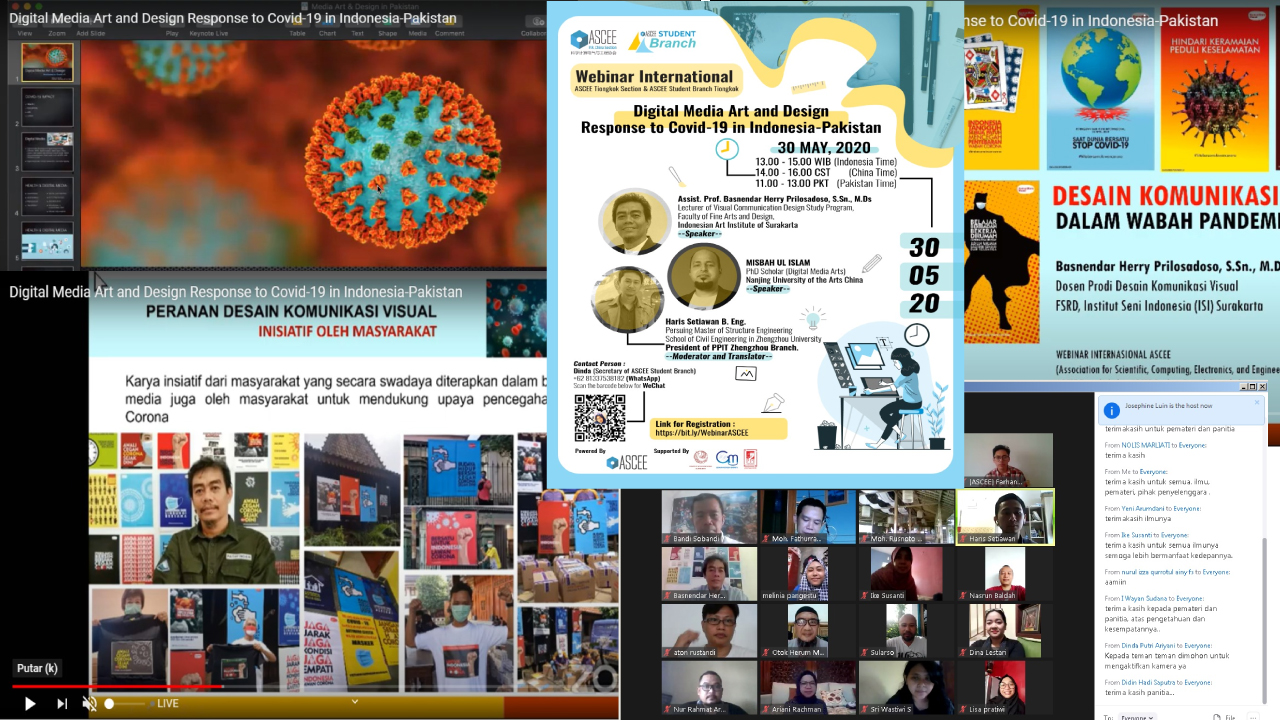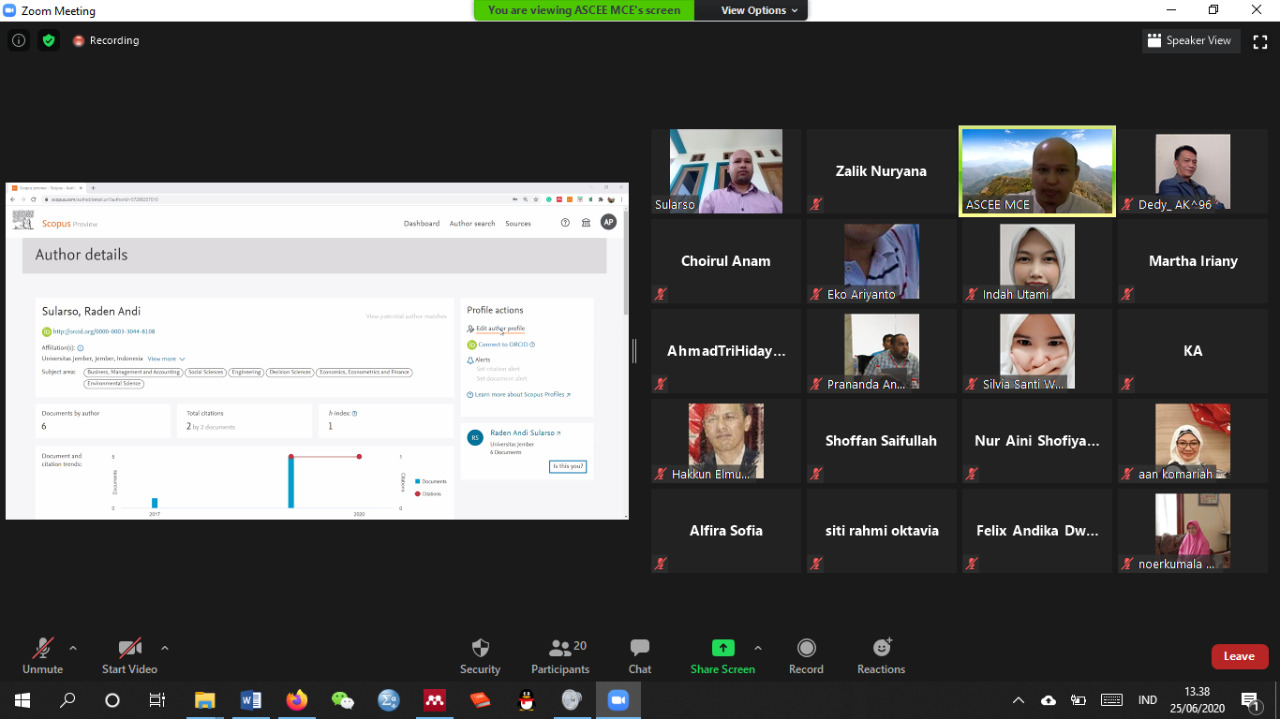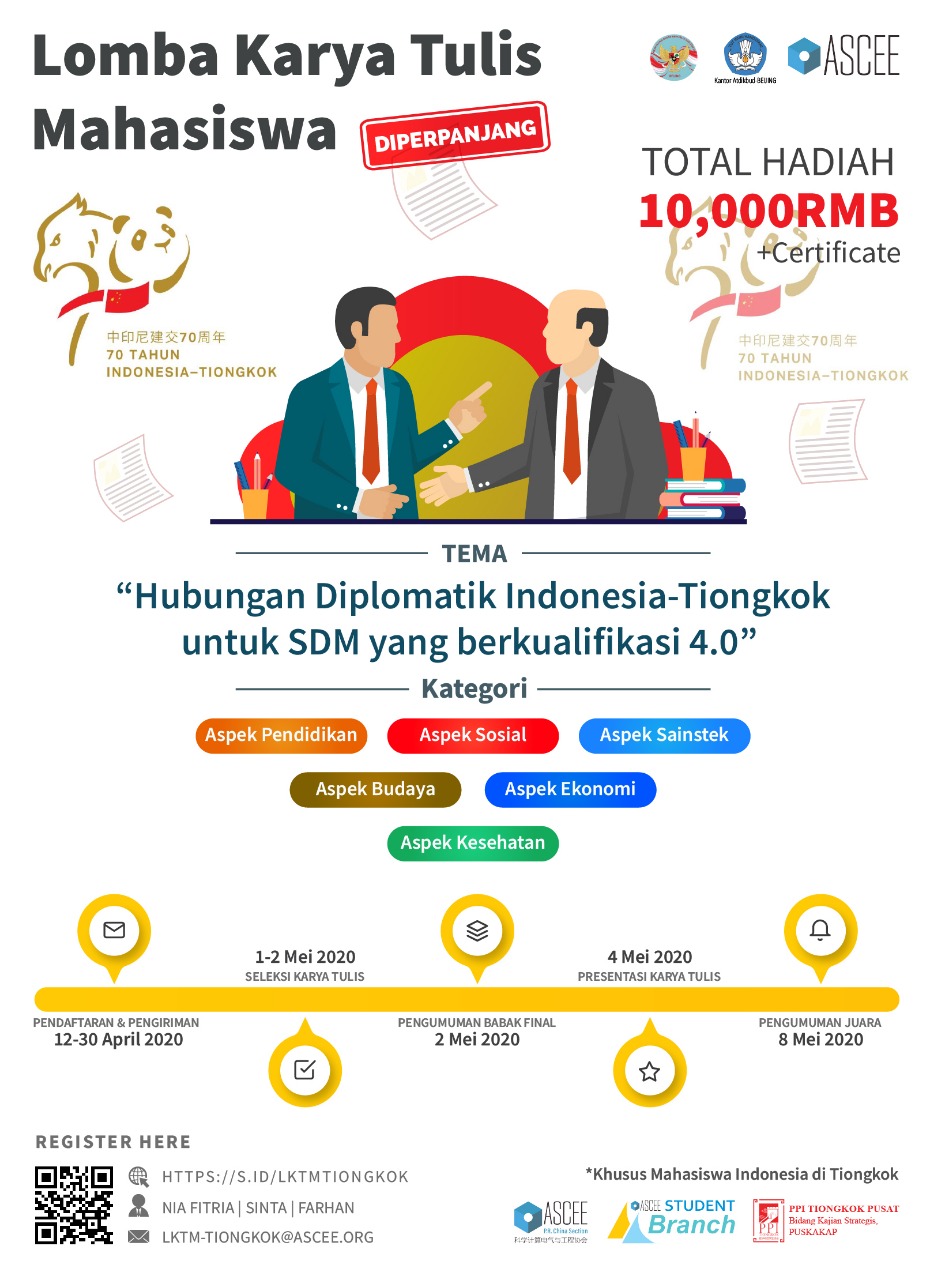
Nanjing - Looking at current conditions, the Corona Virus outbreak (Covid-19) is a significant accelerator of digital transformation that is rolling rapidly, not only in Indonesia but also globally. Quoting a report from Nokia Deepfield, an intelligence and network analytics technology that is supported by the next generation of big data, there is currently an increase in the network operator traffic globally.
This has an impact on improving digital communication. This situation certainly becomes an opportunity to convey Covid-19 prevention messages to the wider digital-based community in whatever form. The design thus has a role as an important information link in the prevention of Covid-19.
The issue of design and how the design responds to Covid-19 is undoubtedly an interesting topic so that on 30 May 2020 at 14.00-16.00 CST (China Time) ASCEE China and ASCEE Student Branch held an International Webinar program with the theme "Digital Media Art and Design Response to Covid-19 in Indonesia-Pakistan." The scope of the discussion is a review through the perspectives of Design Communication, Design Psychology, and Style-Creativity Design based on the theme as reference material.
This, the international webinar is intended to exchange insights and experiences around design between designers, art lecturers, art students, art educators, art practitioners, and the general public of two countries with different cultures. The International Webinar activity is expected to be beneficial for all parties, especially towards the improvement and development of science in the fields of design, design psychology, design education, as well as across the field of design science.

ASCEE Indonesia once again carries out journal management workshops with the theme "The New Normal ASCEE Journal Workshop." This activity was carried out online for two days, 24-25 June 2020. Sularso, the head of the committee, said, "This activity is a routine agenda that will continue to be carried out by ASCEE Indonesia as an effort to improve the quality of the journal."
Andri Pranolo said that this activity was a continuation of previous workshop activities. "ASCEE workshop activities are carried out in series so that they are interconnected between one workshop and another," he said.
The Chairman of ASCEE Indonesia, Ahmad Azhari, M. Eng in his remarks, stated that this activity must continue to be carried out to provide support to the scientific community in improving the quality of international scientific publications. At the end of his remarks, he stressed that he would seriously follow up on the collaboration between ASCEE Indonesia and several universities in Indonesia in terms of improving the quality of journals and scientific publications.
Present at the workshop were 28 participants from various regions throughout Indonesia. The activities that took place two days in a row presented six speakers, Tri Andi, Zalik Nuryana, Shoffan Saifullah, Aji Prasetya Wibawa, Andri Pranolo, and R Ahmad Zaky El Islamy. The first day, the material included OJS 2 and OJS 3 management, good diversity editor and Author, and Journal paper layout editing. The second day, journal accreditation preparation, Scopus Suggestion preparation, and ESCI Press Web of Science suggestion preparation.
Participants who attended the activity were very enthusiastic about attending the workshop. The questions asked the first day about the process or stages of professional paper management. In presenting the material, the speaker also conducts a simulation of managing the journal properly, which is in accordance with the standards of scientific publication rules. On the second day, the questions were more about journal accreditation preparation and Scopus Suggestion preparation, and ESCI Web of Science suggestion preparation.
The participants were very motivated by this activity and hoped that this activity could be carried out sustainably. One participant revealed, "I feel bored if I don't do something, and in this new normal period, ASCEE offers activities that I find very useful." The participants who were present were very enthusiastic and hoped to take part in the next ASCEE program.

Beijing - During a pandemic, ASCEE China together with the Indonesian Embassy through the Education and Culture Attache, PPI China, and ASCEE Student Branch held a Student Scientific Writing Contest (LKTM) for Indonesian Students in China.
The activity was held for the first time at the same time in commemoration of the 70th anniversary of the diplomatic relations between Indonesia and China, which carries the theme "Diplomatic Relations between Indonesia and China for Qualified Human Resources 4.0."
Mr. Yaya Sutarya, S.Pd., M.Pd., revealed, "the purpose of LKTM activities is to provide a means for Indonesian students to publish research work. So that participants can prepare their graduation requirements well. "Besides, as a means of understanding Indonesian-Chinese diplomatic relations, "he said.
The Chairman of the China LKTM Committee, Zalik Nuryana, M.Pd.I said, "the activity was attended by Indonesian students spread across various universities in China. This time the LKTM was attended by around 23 universities. "The stages are from April; the peak is May 7, 2020, grand final," he said.
Nuryana said, before entering the grand final stage, students' scientific papers were reviewed by an internal team and selected to get the five best scientific works. After that, proceed to the assessment of the presentation of the work, "he said.
Nuryana hopes that in the future the Chinese LKTM activity will become an annual event that will later influence the increasing international publications of Indonesian students in China.